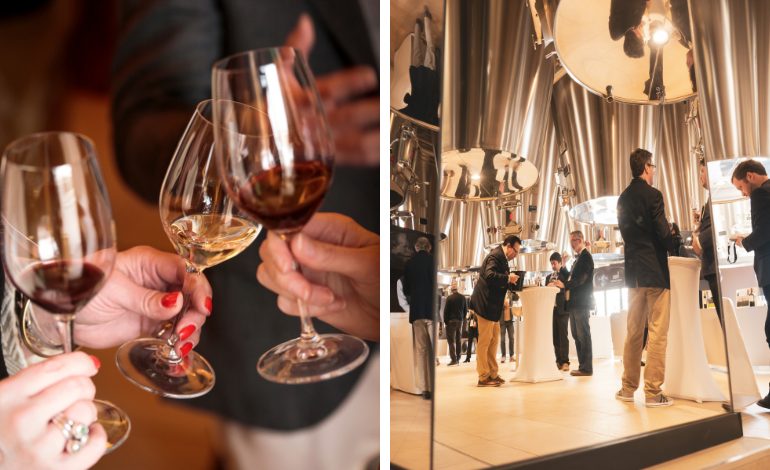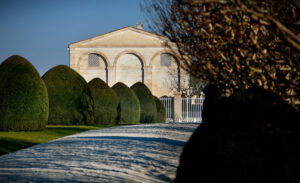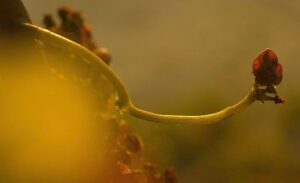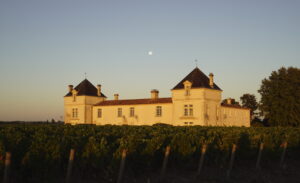What is En Primeurs?


Every year, in spring, “En Primeur” Week takes place in Bordeaux. But what exactly is it? Here is our guide to help you understand this pivotal event in the Bordeaux calendar.
What are Bordeaux “en primeur” wines?
"When the wine world talks about “en primeur”, it is not exactly the same thing as the annual release of Beaujolais Nouveau, nor does it refer to a young wine, or “vin primeur”, meant to be consumed shortly after harvest. “En primeur” is used to describe the commercialisation of wines from various Bordeaux appellations while they are still ageing in the properties' cellars, where they remain until bottling. This period of maturation and barrel ageing takes time – the wines are often released two years later. “En primeur” sales allow the estates to finance holding the wine for this period without bearing all the risks."
How long has the “en primeur” system been in existence?
"The concept of these advance purchases originates from the English, who used it for port wines in the 18th century. In France, the Union des Grands Crus de Bordeaux (UGCB) established “en primeur” sales in the 1970s. Before that, estates presented their wines to merchants at various times of the year, which created something of a cacophony which wasn’t great for business. For the past fifty years, a particular week in the year has been chosen for a collective presentation to the trade and press, which today takes place in late April. In practice, this presentation period really spans three to four weeks. "
"In France, the Union des Grands Crus de Bordeaux (UGCB) established “en primeur” sales in the 1970s."
When can one drink “en primeur” wines?
"There is often a long wait between placing the order and the ideal time for tasting the wines. First, you have to wait two years for the bottles to be delivered. For the most prestigious châteaux, patience is essential, as the wines don’t reach their full potential for at least five years. Other wines can be enjoyed in their youth, although time will inevitably bring an extra dimension to them."
Is it worth buying wines during “en primeur”?
"Wines sold “en primeur” are generally 10 to 30% cheaper than the prices that consumers will find through a wine merchant two years later, when the wine is released in bottle. This difference is due to the lower margins taken by merchants and retailers who do not have to bear the stock (as the wines are still in the châteaux’s cellars) or promote them. “En primeur” offers a good opportunity to get the best price, although it does not guarantee a profit."

How are the wines rated?
"Tasters sample hundreds of wines during the “en primeur” period. This laborious work involves tastings at the châteaux and at winemaking consultancies, and also at events organised by the UGCB and major merchants. It’s a delicate exercise, as it involves assessing not only the current quality of the young wines, but also considering what they will offer to consumers in future decades. "
Who tastes during “En Primeur” Week?
"In spring, hundreds of wine professionals – journalists, buyers, importers, retailers and sommeliers – gather in Bordeaux to taste the wines from the latest harvest. Over a few days – which can extend beyond the official week – they taste up to 200 wines a day, rating and commenting on them during group tastings organised by the Union des Grands Crus de Bordeaux, at winemaking consultancies, or directly at the estates."
Is it a private event?
"While not a private event, “En Primeur” Week and its tastings are reserved for professionals. Consumers cannot simply walk into a château to taste the wines. What is more, the samples are taken fresh out of the barrels for the occasion, which can make the tasting experience difficult for the uninitiated. It’s not always easy to imagine, beneath the tannins and the sometimes intense woodiness, what the wine’s aromatic and taste qualities will be in 18 to 24 months."
What is the average return on investment 10 years on?
"Most Bordeaux “en primeur” buyers see a profit between the acquisition price and the resale price a few years later. According to Boursorama.com, the average profit is 47.2% over ten years. The most prestigious wines, often speculative objects, can see their prices soar. Some wines from 2000 and 2003 have increased by almost 80% and are resold at high prices on eBay, for example. Some enthusiasts include “en primeur” wines in their investment strategies, focusing on long-ageing, highly renowned wines like the first growths."






